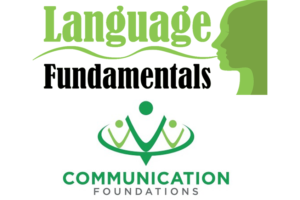Cognitive Communication Disorders
Cognitive Communication Deficit
What are the Cognitive Communication Disorders?
Cognitive-communication disorders are problems with communication that have an underlying cause in a cognitive deficit rather than a primary language or speech deficit. A cognitive-communication disorder results from impaired functioning of one or more cognitive processes. Cognitive communication deficit can impair the functioning of the following cognitive processes:
- Attention
- Memory
- Perception
- Insight and judgment
- Organization
- Orientation
- Language
- Processing speed
- Problem solving
- Reasoning
- Executive functioning
- Metacognition
These cognitive processes are not isolated abilities. They’re controlled by many cortical and subcortical structures within the brain. If the frontal lobe of the brain becomes damaged in a car accident, or a stroke happens in the right hemisphere, these cognitive processes can stop working properly. A person with a cognitive-communication disorder may have difficulty paying attention to a conversation, staying on topic, remembering information, responding accurately, understanding jokes or metaphors, or following directions.
Cognitive-communication disorders vary in severity. Someone with a mild deficit may simply have difficulty concentrating in a loud environment, whereas a person with a more severe impairment may be unable to communicate at all. People with cognitive-communication disorders often have trouble participating in conversations. They may have difficulty understanding what is said, or be unable to respond in a timely fashion. They may have trouble speaking clearly, or conveying their thoughts efficiently and effectively.
A person with a cognitive-communication disorder may have trouble reasoning and making decisions while communicating. They may have trouble remembering their conversations and experiences. Persons with cognitive-communication disorders sometimes have trouble responding in an appropriate or a socially acceptable manner.
They often lack filters, expressing their sexual thoughts and speaking without regard for the feelings of others. In addition to conversational problems, those with cognitive-communication disorders may find it hard to understand instructions, presentations, movies, television, and radio. Some have trouble reading and/or writing.
This can make it hard for them to complete job tasks and schoolwork, participate in their communities, or simply enjoy books, magazines, newspapers, and online media.
Treating Cognitive-Communication Disorders falls within the scope of the Speech Language Pathologist and is an area where Language Fundamentals excels.
People with cognitive-communication disorders often benefit from assessment and personalized treatment by a speech-language pathologist, since each case is unique. Therapy may include a combination of techniques. The three main goals are to restore function, compensate for deficits, and educate the client and family about the disorder and its treatment.
Techniques for restoring the client’s previous level of functioning include the following:
• Using exercises or software to retrain discrete cognitive processes such as attention
• Using internal memory strategies or spaced retrieval training to solidify memories
• Completing practice tasks that are difficult, while offering support, to build independence
Techniques designed to compensate for the client’s cognitive communication deficits include:
• Using external strategies for improving memory (e.g. memory books, smartphone apps)
• Teaching strategies for approaching problems to strengthen executive functioning (e.g. “plan, do, review”)
• Establishing routines and schedules

Techniques for educating the client and his or her family include the following:
• Using video or audio recordings to make the client and his or her family aware of what the deficit looks and sounds like
• Discussing the assessment results with the client and his or her family
• Problem-solving around errors as they occur
• Providing group therapy for the client and his or her family, including a discussion of the client’s deficits and group practice of the treatment strategies
• Teaching family members and caregivers to recognize and help the client overcome his or her deficits
ARE YOU READY TO GET STARTED?
CONTACT US TODAY TO SCHEDULE AN APPOINTMENT

